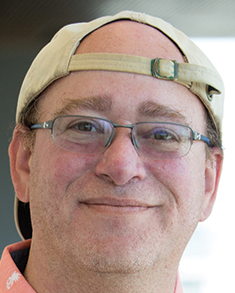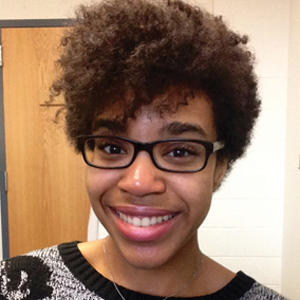Shoichet recognized for informatics tools for drug discovery
Brian Shoichet, a professor of pharmaceutical chemistry at the University of California, San Francisco, won the 2017 American Society for Biochemistry and Molecular Biology DeLano Award for Computational Biosciences. Shoichet works on the development of docking methods and screening libraries and applies these tools in particular to G-protein–coupled receptors.

The Shoichet lab seeks to improve on traditional docking methods with new tricks of the trade. His lab has generated several distinct binding pockets that mimic typical protein cavities with which a promising small molecule could dock. This allows even failed predictions to help in the search for targets that match each small molecule tested.
In addition, the Shoichet lab works with libraries containing millions of small molecules, looking to enhance these libraries with the addition of bio-relevant molecules. This elevates molecular docking projects to the level of traditional high-throughput screening methods.
A key test of these methods has been on GPCRs. The Shoichet lab, in collaboration with Bryan Roth of the University of North Carolina, has characterized several orphan GPCRs, including GPR68. This work utilized another aspect of Shoichet’s toolbox, the chemical probe, which identified GRP68’s role in fear-based learning.
In his letter nominating Shoichet, UCSF colleague Matthew Jacobson wrote, “Brian is distinct in that he has extended the reach of computational modeling to study protein-ligand interactions with enormous impact on drug discovery and enzymology.”
As the DeLano Award celebrates the development and dissemination of computational tools, Andrew Lee Hopkins of the University of Dundee noted in his letter of support for Shoichet’s nomination that Shoichet indeed fits the bill. “In the spirit of the ASBMB DeLano Award, Professor Shoichet has made multiple informatics platforms of his research readily accessible to the scientific community to accelerate their own research,” he wrote.
Shoichet earned his bachelor’s degree in chemistry from the Massachusetts Institute of Technology and his Ph.D. in medicinal chemistry from UCSF. After postdoctoral fellowships at UCSF and the University of Oregon, Shoichet held a faculty position at Northwestern University before being recruited back to UCSF.
Shoichet won the PhRMA Foundation Career Award and the National Science Foundation Career Award. He also has served on the scientific advisory board for the National Institutes of Health RoadMap Chemical Libraries and Screening Initiative and the NIH Centers for Biomedical Computing.
Enjoy reading ASBMB Today?
Become a member to receive the print edition four times a year and the digital edition monthly.
Learn moreGet the latest from ASBMB Today
Enter your email address, and we’ll send you a weekly email with recent articles, interviews and more.
Latest in People
People highlights or most popular articles

From humble beginnings to unlocking lysosomal secrets
Monther Abu–Remaileh will receive the ASBMB’s 2026 Walter A. Shaw Young Investigator Award in Lipid Research at the ASBMB Annual Meeting, March 7-10 in Washington, D.C.

Chemistry meets biology to thwart parasites
Margaret Phillips will receive the Alice and C. C. Wang Award in Molecular Parasitology at the ASBMB Annual Meeting, March 7-10 in Washington, D.C.

ASBMB announces 2026 JBC/Tabor awardees
The seven awardees are first authors of outstanding papers published in 2025 in the Journal of Biological Chemistry.

Decoding how bacteria flip host’s molecular switches
Kim Orth will receive the Earl and Thressa Stadtman Distinguished Scientists Award at the ASBMB Annual Meeting, March 7–10, just outside of Washington, D.C.

Thiam elected to EMBO
He was recognized during the EMBO Members’ Meeting in Heidelberg, Germany, in October.

The timekeepers of proteostasis
Learn about the cover of the winter 2026 ASBMB Today issue, illustrated by ASBMB member Megan Mitchem.

